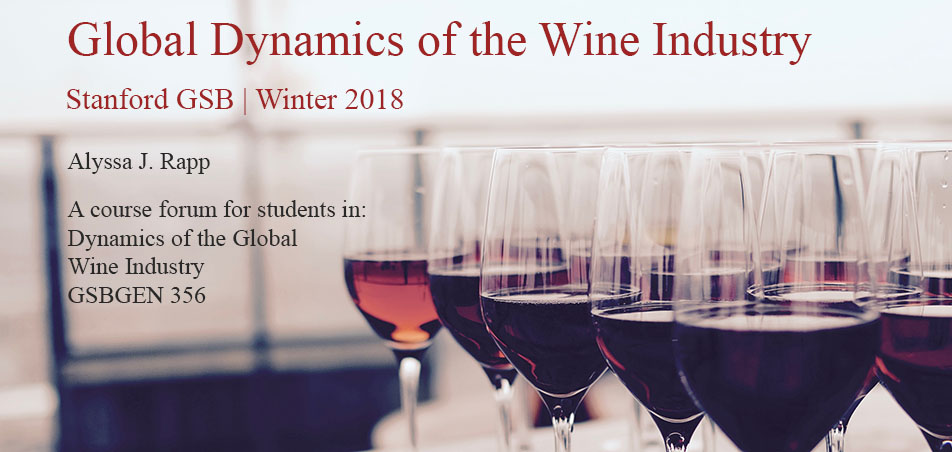Our discussion in the last class left
me thinking about the role, and value, of history in winemaking. Christine Wente shared her family’s impressive
history, but also couched it with the fact that there were families in Italy
that had 20+ generations in the family wine business. On the surface, it seems like that storied
history should give old world countries an insurmountable advantage in the knowledge
of wine making, yet there are many instances where winemakers (and countries)
new to wine can make inroads, such as in the case of Inniskillin.
Similarly,
a tradition in wine making doesn’t necessarily mean that wines will be high
quality – for example, I traveled this summer on a GSB Global Seminar to Greece,
which has been producing wine for the last 6,000+ years and has a strong
culture of wine consumption (pretty much every meal we had was served with
wine). You would think that this might provide
Greece a strong advantage in wine making, but the winery we visited (Ktima
Gerovassiliou) was only established in the 1980s and was one of the few
wineries on the Greek mainland that produced wines with high enough quality for
export, since ~90% of Greek wine is consumed domestically. That winery collected artifacts from ancient
Greek wine production – indeed, the Greeks developed some of the earliest wine
containers and wine presses found to date (see picture below). It was interesting to see how strong the
history of winemaking is in Greece, yet how difficult it has been for that
country to produce wines on par with the likes of France and Italy. I’m sure political, regulatory, and economic
forces most certainly played a role, as we have been discussing in class.
I’m looking forward to learning
more in the new few weeks about how different countries rose to prominence in winemaking
while others have lagged behind – which will lead into our midterm project to predict
where the next big wine regions to rise to prominence will be.








